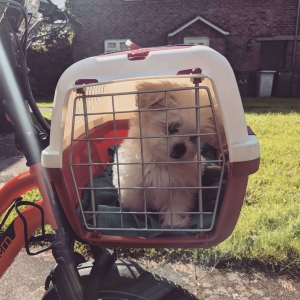Let’s hear for the staycation
How do you feel about getting on plane right now and jetting away? The people I am talking to are split both ways. There are those that would grab a bag right now and rush to the airport while others are saying to me that they don’t expect to be going abroad until at least 2023.
So, one client said to me, just as an aside, “why is it that we go on holiday to get away from where we live and the people who live where we go on holiday are going some where else for theirs? Can’t we all just stay where we are have a good time?”
The idea of needing to get away would suggest that where we are is never really good enough. I get it that the act of taking a break, of doing something different, is stimulating and often relaxing but the question got me thinking about do we really appreciate where are and what we have? Are we able to enjoy the space that we live in.
I am reminded of the amount of the amount of times when we have been driving around europe and have been spellbound by views and vistas. Yet there are many times when we have noted that we have views like this where we live on the Wirral. There is a beach on an island in the Florida Quays that people go to every evening to watch and marvel at the sunset. It does have lovely sunsets. But, when I watch the sun going down over Hilbre Island and the Welsh coast I am stunned on a daily basis just down the road from my house.
The peninsula named Wirral is know as the insular peninsula mainly because people, once they arrive, never leave. I know many people that were born on the Wirral that have never travelled anywhere else, not even for holiday. I note that those that do manage to leave often return after a few years as though they have been drawn back by some invisible elastic umbilicus that will not them truly leave.
Wirral sticks out into the sea with estuaries either side. There is the river Mersey between Wirral and Liverpool and the river Dee between Wirral and Wales. Both estuaries empty into Liverpool Bay and eventually the Irish Sea. At the top end of Wirral there are beaches, and all the fun of the holiday trade. There seems to be a balance here of industry, residential and holiday occupation and accommodation.
Where do you live?
How well do you know your own area? What do you know about it’s history? Maybe this would be a good time to get to know where you live? Especially if you are not holidaying abroad fro a couple of years.
I have lived all over the world and only came to Wirral with work and stayed and now I cant think of a better place to live. Like most of the British I feel that the weather could be warmer and that the sun could shine some more but taken over all I live in heaven. In ten minutes I can stroll down to the beach. In twenty minutes I can be in the centre of Liverpool. In twenty five minutes I can be in Chester and in forty minutes into the mountains of Wales. The motorway system that runs through the middle of Wirral connects us to the rest of the UK and on through to Europe.
Once I became interested in the Wirral and began to look around it I found places that are gems. There are areas of richness and poverty, areas of beauty and the not so beautiful. I discovered that Paul Hollywood’s dad has a bakers not far away, that Lillie Savage was brought up here and Wirral has been home to Ian Astbury, Ian Botham, Fiona Bruce,Ellis Costello, Daniel Craig, Chris Farrell, Austin Healey, Paul Hollywood, Eric Idle, Paul O’Grady, John Peel, Patricia Routledge, Harold Wilson, the list goes on forever. And there was a Viking parliament in a place called Thingwall apparently a corruption on Ing meaning assembly and Voll meaning field- Amazing.
Anyway, I digress. My advice to you is to get to know where you are. Don’t become blind to what is around you and certainly enjoy your holidays in foreign parts, once we can safely do them again, but maybe begin to understand why people from other parts of the world might like to come to where you live for their annual holiday.
Take care and be happy
Sean x

 I couldn’t let this one pass. Last week Ed and family acquired a lovely little dog call Cooper. I think we should insert a picture here Ed. I know that Cooper is and will be loved, you just have to see the look in Ed’s eyes when he is talking about him, a real positive addition to the family. Dogs really can be man’s best friend. Sadly man is not always a dogs best friend.
I couldn’t let this one pass. Last week Ed and family acquired a lovely little dog call Cooper. I think we should insert a picture here Ed. I know that Cooper is and will be loved, you just have to see the look in Ed’s eyes when he is talking about him, a real positive addition to the family. Dogs really can be man’s best friend. Sadly man is not always a dogs best friend.